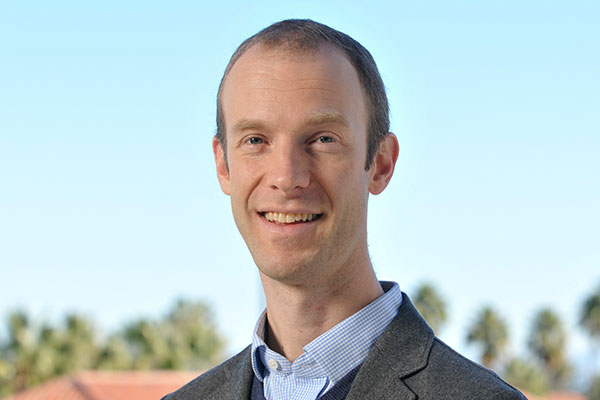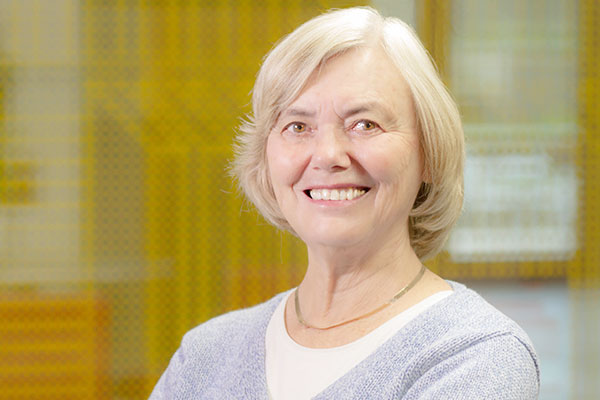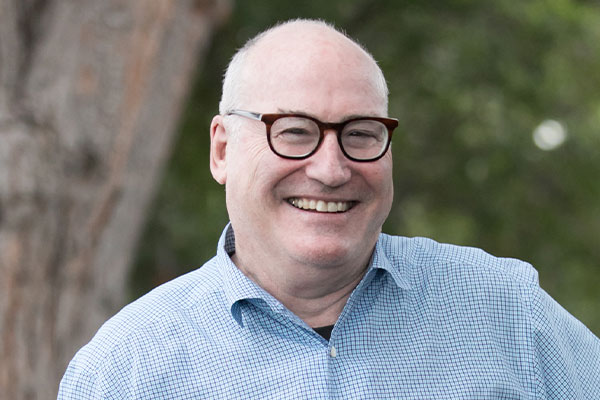Research
Leading-edge research on entrepreneurial policy, business strategy and innovation in technology-driven markets.
STVP, the Stanford Engineering Entrepreneurship Center, advances ground-breaking research on technology entrepreneurship and innovation. STVP’s leading-edge scholarly research creates a deep understanding of start-up performance and growth, technology innovation, and entrepreneurial policy. Our rigorous approach provides accessible insights that entrepreneurs apply in practice, while also improving the theoretical understanding of entrepreneurship. Research from STVP explores how complex interactions between new technologies, firm strategies, and policy interventions impact economic development and the growth of technology ventures.
Research Themes
The research of STVP, the Stanford Engineering Entrepreneurship Center, faculty, students and alumni helps deepen our understanding of entrepreneurial policy, business strategy and innovation in technology-driven markets. Our work combines theoretical ideas with field-based studies on the real-world challenges and opportunities presented to technology firms in various global contexts with distinct social norms and policy interventions. Our insights are strengthened both by the multi-disciplinary expertise in Stanford’s School of Engineering and our proximity to Silicon Valley. STVP projects examine a range of topics, such as:
- globalization and entrepreneurship in emerging economies
- partner relationships and network formation
- firm strategy and competition
STVP, the Stanford Engineering Entrepreneurship Center, research relies on a variety of methods, including large-scale statistical analysis, laboratory experiments, simulation and qualitative research, such as interviews. Our research focuses on a variety of technologies with particular emphasis on digital communication, medical devices, clean-tech
RESEARCH FOCUS
Entrepreneurial Policy and Innovation
Core Questions:
- How do government incentives and regulations impact scientific research, innovation, commercialization and entrepreneurial activity?
- How do social norms, surrounding institutions and supports — from academic institutions to social movements and capital structures — affect the development of new technology ventures?
Learn More About STVP’s Research:
Faculty






Doctoral Program
STVP – the Stanford Engineering Entrepreneurship Center’s doctoral program prepares students to become leading academic experts on technology entrepreneurship, both in terms of policy (comparative contexts and external interventions) and practice (innovation and business strategy). Our doctoral students produce research and sharpen both quantitative and qualitative research methodologies with the mentorship of leading-edge faculty.
Apply to study with STVP and earn your doctoral degree with MS&E. Learn More
Applications must be submitted via STVP’s home department, Management Science & Engineering (MS&E) and by selecting one of STVP’s research specialties as an academic interest.
STVP – the Stanford Engineering Entrepreneurship Center’s research specialties are:
Entrepreneurial Policy
- Focus on the role of public policy in shaping the rate, nature and success of entrepreneurial activities as well as the formation of new ventures
Strategy, Innovation and Entrepreneurship
- Focus on innovation, competition and collaboration in the context of both established firms and new ventures
The faculty welcomes applications from students with social science or technical degrees — the blending of engineering and social science is the department’s trademark. Our doctoral students combine studies in engineering, economics, management, sociology, and psychology to gain a unique and balanced perspective. Our students not only take courses in MS&E, but also have access to Stanford’s entire policy and organizational studies communities, which provide internationally renowned thought leadership. STVP, the Stanford Engineering Entrepreneurship Center, doctoral students typically complete degree requirements in four to five years. Students complete both a written comprehensive exam and a second-year paper, displaying both a literature review covering the first two years of coursework, and some original analysis in organizational studies. Most program graduates pursue academic careers at leading business and engineering schools, or explore career opportunities in industry.
To learn more about the program, visit: Application Submission MS&E PhD Course and Degree Requirements Financial Aid MS&E PhD. Research Specializations
PhD Students
Wajeeha Ahmad

Parisa Assar

Christopher Flowers

Naman Gupta

Zahra Hejrati

Philipp Reineke

Yulia Venichenko

PHD ALUMNI
Our PhD graduates become leading academics and hold positions at Carnegie Mellon, Harvard University, INSEAD, Northwestern University, University of North Carolina Chapel Hill and many more.
Daniel Armanios (2015)
Assistant Professor, Department of Engineering and Public Policy, Carnegie Mellon University
Dissertation: What is the Role of the State in Entrepreneurship and Venture Performance?
Jiang Bian (2021)
Assistant Professor in Management and Strategy, The University of Hong Kong
Dissertation: Collaborative Innovation: The Antecedents, Consequences, and Valuation of Technological Resource Contributions
Christopher B. Bingham (2005)
Area Chair of Strategy and Entrepreneurship and Phillip Hettleman Distinguished Scholar, University of North Carolina — Chapel Hill
Dissertation: Learning from Heterogeneous Experience: The internationalization of entrepreneurial firms
Robert Bremner (2020)
Corporate Strategy, Electronic Arts
Dissertation: User Community Innovation: Implications for Firm Strategy, Organizing and Performance
Shona Brown (1995)
Member of Corporate Boards; Former Google Senior VP
Dissertation: A Multiple Horizon Strategy for Managing Time in High Technology Environments: The Case of Multiple Product Development Projects
Eric Chen (2007)
Vice President of Program & Portfolio Management, Cognoa
Dissertation: Strategy as Competitive Moves: Extending Competitive Dynamics Research to New Markets and New Moves
Robert Eberhart (2013)
Associate Director, Research on Entrepreneurship and Society, Stanford University
Dissertation: Institutional Change and Entrepreneurship
Nathan Furr (2009)
Associate Professor of Strategy, INSEAD
Dissertation: Cognitive Flexibility: The Adaptive Reality of Concrete Organization Change
Charles Galunic (1994)
Professor of Organizational Behaviour, Aviva Chair in Leadership, INSEAD
Dissertation: The Evolution of Intracorporate Domains: divisional charter losses in high-technology multidivisional corporations
Sam Garg (2011)
Assistant Professor, Hong Kong University of Science & Technology
Dissertation: Decoding the CEO-Board Relationship: Strategic Decision Making and Monitoring in Entrepreneurial Firms
Elizabeth Gerber (2008)
Associate Professor, Segal Design Institute Northwestern
Dissertation: Devotion to an Innovation Process: The Case Study in Human Centered Design
Khonika Gope (2023)
Assistant Professor of Management, Lundquist College of Business, University of Oregon
Dissertation: The Development of Entrepreneurial Skills and Motivation: The Role of Institutions
Stine Grodal (2007)
Associate Professor, Boston University
Dissertation: The Emergence of a New Organizational Field — Labels, Meaning and Emotion in Nanotechnology
Melissa Graebner (2001)
Professor, University of Illinois
Dissertation: Decision-Making, Negotiation and Integration Issues in Acquisitions of High-Tech Start-ups
Benjamin Hallen (2007)
Associate Professor, University of Washington
Dissertation: The Origin of the Network Positions of New Organizations — How Entrepreneurs Raise Funds
Douglas Hannah (2015)
Assistant Professor, University of Texas at Austin
Dissertation: Firm Strategy in Nascent Ecosystems
Andy Hargadon (1998)
Professor & Founding Director of Child Family Institute for Innovation and Entrepreneurship, University of California — Davis
Dissertation: The Theory and Practice of Knowledge Brokering: case studies of continuous innovation
Ahmed Heikal (1992)
Chairman & Founder, Qalaa Holdings
Dissertation: The Evolution of Joint Development Alliances
Quintus Jett (1999)
Adjunct Professor, Rutgers University
Dissertation: Linkages Between Competitive Product Moves and Organizational Capabilities in Rapidly-Changing Environments
Wesley Koo (2018)
Assistant Professor, Department of Strategy, INSEAD
Dissertation: Online Sellers’ Offline Environments — Implications for Platform Strategy
Michael Leatherbee (2015)
Assistant Professor of Strategy and Entrepreneurship, Pontificia Universidad Católica de Chile, School of Engineering
Dissertation: Discovering Entrepreneurial Opportunities: Individual, Team and Organizational Capabilities
Jeff Martin (2002)
Associate Professor, University of Alabama
Dissertation: Where are All the Synergies?: The Co-evolution of Cross-business Synergies in the New Economy
Ralph Maurer (2008)
Head of School, Oxbridge Academy
Dissertation: Tweaking the Iconic: The Management of Continuity-Constrained Resources
Rory McDonald (2011)
Associate Professor, Harvard Business School
Dissertation: Competition and Strategic Interaction in New Markets
Mark Mortensen (2003)
Associate Professor and Area Chair of Organizational Behavior, INSEAD
Dissertation: Antecedents of Boundary Disagreement in Distributed and Collocated Teams
Carrington Motley (2023)
Assistant Professor of Entrepreneurship and Organizational Behavior & Theory, CMU’s Tepper School of Business
Dissertation: “Managing External and Internal Change: Lessons from Entrepreneurship”
Andrew Nelson (2007, post-doc 2008)
Associate Professor and Randall C. Pape Chair in Entrepreneurship, University of Oregon
Dissertation: Institutional Convergence and the Diffusion of University — Versus Firm-Origin Technologies
Gerardo Okhuysen (1997)
Professor and Associate Dean, University of California — Irvine
Dissertation: Creating Opportunities for Change: how formal problem solving interventions work
Siobhan O’Mahony (2002)
Feld Family Professor of Innovation and Entrepreneurship, Boston University
Dissertation: The Co-evolution of the Open Source Community and Emerging Business Models
Timothy Ott (2017)
Assistant Professor, Kenan-Flagler Business School, University of North Carolina at Chapel Hill
Dissertation: From opportunity to strategy: How executives create a system of interdependent strategic decisions
Pinar Ozcan (2005)
Professor, Entrepreneurship and Innovation, Oxford University
Dissertation: Start-ups in nascent markets: Building a strong alliance portfolio from a low-power position
Henning Piezunka (2014)
Assistant Professor, INSEAD
Dissertation: Competing in Intermediated Markets
Jason Rathje (2019)
Partner, AF Ventures, AFWERX
Dissertation: Essays on Public Funding for Private Innovation
Reuven Regev (1990)
Founder & Chairman, Scanmarker
Dissertation: Global Versus Locally Focused Activities in Organizations
Zachariah Rodgers (2017)
Senior Associate, McKinsey & Company
Dissertation: The overriding power of ought nots: Evidence from microfinance for why some types of hybrid organizations fail to achieve comprehensive performance
Keith Rollag (2000)
Dean of F.W. Olin Graduate School of Business, Babson College
Dissertation: Newcomers, Oldtimers, and Relative Tenure: Organizational Assimilation as an Outcome of Social Comparison
Jeff Rosenberger (2004)
Chief Operating Officer, Guideline Technologies
Dissertation: Nascent technology ventures and corporate venture funding
Filipe M. Santos (2003)
Dean, Professor, and Chair of Social Entrepreneurship, Universidade Católica, Lisbon
Dissertation: The Management of Organizational Boundaries in High-Tech Industries
Victor Seidel (2005)
Associate Professor, Babson College
Dissertation: Managing novel product concepts: A process theory
Sruthi Thatchenkery (2016)
Assistant Professor, University College London
Dissertation: Rivalry and Innovation
Ron Tidhar (2020)
Data Scientist, Instagram
Dissertation: Developing High-Performing Business Models
Eric Volmar (2021)
Chief of Research & Analytics at AFWERX, U.S. Air Force
Dissertation: When New Markets and Powerful Institutions Collide: How Mission-Driven Entrepreneurs Form Strategy, Organize, and Compete
Tyler Whittle (2021)
Senior Associate @ Floodgate
Dissertation: Entrepreneurial Finance: From Accelerators to IPOs
Willow Wu (2021)
Assistant Professor, The Chinese University of Hong Kong
Dissertation: Entrepreneurial Strategies in Institutional Changes: Tackling the Conflicts Between New and Old Rules
Postdoctoral Scholars
Fanny Li

Anna Lukkarinen

Featured Publications
Abstract
Drawing on institutional theory, we examine how the institutional logics (i.e. taken-for granted norms, structures and practices of different types of funding partners) influence young firms and their search for innovations. We test our hypotheses in a longitudinal study of a complete population of ventures in the minimally invasive surgical device industry in the U.S., supplemented by interviews with industry informants. We find that types of funding partners vary significantly from one another: They all provide resources, but their institutional logics differ. Venture capitalists (VCs) pick young firms with significant patented technologies and help firms launch products, and high-status VCs strengthen both the patenting and product innovations of young firms. Corporate venture capitalists and government agencies also select patent-intensive firms but are less effective than VCs in helping ventures during the relationship because, though these partners often have impressive technical and commercial resources for innovation, their institutional logics constrain how effectively young firms can access their resources. Relative to other types of funding partners, VCs have a closer advisor relationship with the venture; greater power, influence and access to resources; better-paced and more-motivating milestones; and better understanding of the commercialization process. Our results extend the institutional logics literature to inter-organizational relationships and suggest that the choice among types of funding partners may have unanticipated effects on firms; innovation beyond the financial resources gained through the relationship.
Abstract
How do different sources of social influence impact the likelihood of entrepreneurship? We examine this question in the setting of an entrepreneurship class in which students were randomly assigned to receive mentorship from either an entrepreneur or a non-entrepreneur. Using a longitudinal field experiment with a pre-test/post-test design, we find that randomization to an entrepreneur mentor increases the likelihood of entrepreneurial careers, particularly for students whose parents were not entrepreneurs. Additional analysis shows the mentor influences the decision to join an early-stage venture, but not to become a founder. Performance data suggests that entrepreneurial influence is not encouraging “worse” entrepreneurship and may have helped students in joining or founding better-performing ventures. We contribute to the literature on social influence in entrepreneurship by examining the interaction between multiple sources of social influence and by using a randomized field experiment to overcome the endogenous process of tie formation.
Abstract
How a firm views its competitors affects its performance. We extend the networks literature to examine how a firm’s positioning in competition networks—networks of perceived competitive relations between firms—relates to a significant organizational outcome, namely, product innovation. We find that when firms position themselves in ways that allow them to see differently than rivals, new product ideas emerge. Simply put, firms with an unusual view of competition are more innovative. We situate our analysis in the U.S. enterprise infrastructure software industry, examining the relationship between the firm’s position in competition networks and its innovation over the period of 1995–2012. Using both archival and in-depth field data, we find that two factors—the focal firm’s spanning of structural holes in the network and the perception of peripheral firms as competitors—are positively associated with its product innovation. At the same time, turnover in firms perceived as competitors has an unexpected negative association with innovation. Overall, the findings suggest that firms benefit when they see the competitive landscape differently than their competitors. The findings also show that what we know about innovation-enhancing positioning in collaboration networks does not necessarily hold in competition networks.
Abstract
Our study shows how institutional intermediaries established to foster the creation of new firms might hinder new firm growth instead. We show that intermediaries can reduce new firm growth rates due to institutional conflict. To analyze this idea, we examine the setting of junior stock exchanges, which are commonly formed to facilitate entrepreneurial growth. The introduction of these exchanges focused investment into new technology firms, reduced investment in other sectors, and led to diminishing new firm growth. Our findings demonstrate how institutional conflict causes unintended effects and reveals the complexity of influencing entrepreneurship with institutional intermediaries.
Research Events
West Coast Research Symposium on Technology Entrepreneurship
The West Coast Research Symposium on Technology Entrepreneurship (WCRS) provides an intellectually stimulating experience and a community focused on cutting-edge research mapping the theoretical domain of technology entrepreneurship, innovation and strategy. WCRS is co-sponsored by STVP, the Center for Innovation and Entrepreneurship (University of Washington), the Lundquist Center for Entrepreneurship (University of Oregon), the Lloyd Greif Center for Entrepreneurial Studies (USC), the Don Beall Center for Innovation & Entrepreneurship (UC Irvine), and the Ewing Marion Kauffman Foundation.
Discover entrepreneurial learning opportunities at Stanford with our monthly newsletter!
